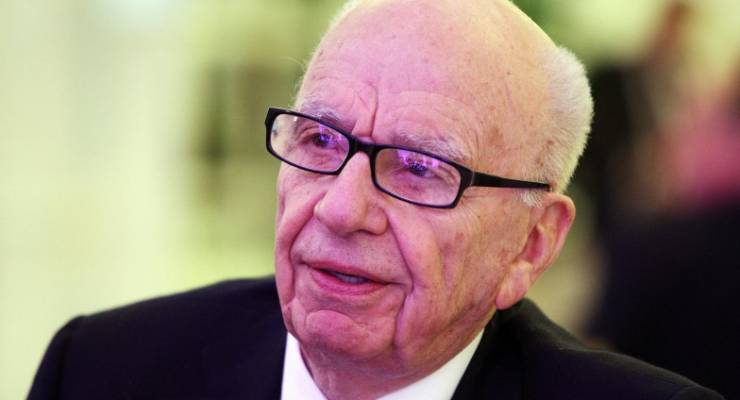
Australian news journalism has never seen a day as black as today — and not just because News Corp has closed 12 of its 17 regional daily newspapers, leaving Australia with just 20 remaining.
Today also demonstrates the grotesque power of one company — and one family — to decimate a large slice of a country’s news in a single media release.
A company worth $16.3 billion, run from New York, has wielded a knife through large swathes of Australian democracy.
And the same company has another knife hovering over Australian public interest journalism, as it decides whether or not AAP, the country’s only wire service, employing around 200 journalists, will be sold or left to die.
Of course, this situation has been possible for years. But many policymakers have preferred to either ignore it or take it as an abstract thought. Now it’s a reality, and communities — and democracy — will suffer.
The spin has been extraordinary.
Although hundreds of journalists and other employees will lose their jobs, the company didn’t have the decency to quantify that number — instead turning the appalling news into propaganda, claiming it is “reshaping News Corp Australia to focus on where consumers and businesses are moving and to strengthen our position as Australia’s leading digital news media company”.
It also noted that “more than 375 journalists will be specifically covering regional and community news and information. They will continue to serve, and live in, their local communities with the majority in regional Queensland where we have most of our titles”.
It is currently unclear how many reporting jobs will go in regional news media. At time of publication, 175 was the most cited industry figure.
There is no argument that the news business is tough and that News Corp is a business. It is not the ABC. But these closures reveal just how fragile the new media is — and how vulnerable the fourth estate and all its public interest functions are to Rupert Murdoch, his family and their lieutenants.
Eric Beecher is the chairman of Private Media and the publisher of Crikey. Peter Fray is Crikey‘s editor-in-chief.









“Murdoch global empire, selling democracy down the river”? … How long ago was this written?
Good point Klewso, the wrinkled old goat has been flat out turning democracy into dollars for his coffers pretty much all his life.
While it is disastrous for the journalists involved, it is a day for great celebration because it is possibly a sign that the Murdochs are loosing the grip they have had on peddling crap in this country for far too long. Hopefully some enterprising journalists will step up to the plate and fill the void with some real news.
One outcome of Murdock . . . to further accelerate/shift Australian idiom – language, culture to conform, complement, reflect Americana?
I may have missed the point somewhere, but isn’t fewer Murdoch outlets better for democracy? Maybe this shows people are sick of buying (or has it happens in my supermarket refuse offers of free Newscorp propaganda dressed up as news); & an indication of intelligence out there. One can but hope that the rest of their publications, like the Australian follow, and that the gap will now be filled with real news, with journalists writing real news, not just topping and tailing corporate and government pressers and their manufactured stories.
Indeed I would have thought that getting rid of, or reducing, foreign influence in the media like Murdoch could have been something our parliament could and should have required.
I agree the regional employment impacts aren’t good. In some respects that is a consequence of technology and infrastructure. …like the loss of regional jobs that followed the rollout of railways. …ditto for communications.
I may have missed the point MD? My fear is he only changing horses ie print for digital? In NT . . BOTH! Closed one and kept one. He can stay or jump. Whichever most profitable. Either way . . there remains only one perspective. But digital far, far cheaper due to international library. Reference post above. Sure he can ‘badge’ local content with minor re-write but he certainly doesn’t need anywhere near number of local journo’s on location? I hate the thought what damage will be done to Australian language, culture and employment.
In NT we still think of selves as a ‘mob’ . . . not a ‘bunch.’
Couldn’t agree more.
Crikey’s misguided analysis that the closure of any media outlet is a loss, is manifestly incorrect.
The ability to print newspapers has been a major barrier to new market entrants. Now that you need to only publish online to compete will improve media diversity, competition, and the health of our democracy.
News Corp is a malign and corrupting force in Australian and other UK/USA democracies.
Just look at Fox News cheerleading the rise of Tump: America’s wannabe autocrat and tyrant.
News Corp would do exactly the same here in Oz.
Good riddance.
Dangamos, you are on the money, except that you seem to have missed the fact that New Corp assisted in the installation of Abbott et al here in Oz long before they succeeded in installing Trump in the US, and that event will curse this country for many generations to come.
I think Newscorp in particular and most other news institutions that have followed their example only have themselves to blame. Their evolving policy of partisanship and reliance on advertising instead of quality content has meant they became little more than advertorial outlets. Who wants to pay for that these days?
On the other hand I happily pay for independent quality journalism or other content but I hate being inundated with ads, particularly when I have a choice. I am glad the old news companies are disappearing. They have already undermined proper democracy far too much. I look forward to what will take their place. It will surely be more what people want!
A major problem is not enough people want to pay much for anything these days when they can get it for free or peanuts with so many “all you can eat” platforms (Netflix, Spotify, et al).
Ask musicians how that’s working out.
A major problem is not enough people want to pay much for anything these days when they can get it for free or peanuts with so many “all you can eat” platforms (Netflix, Spotify, et al).
Ask musicians how that’s working out.